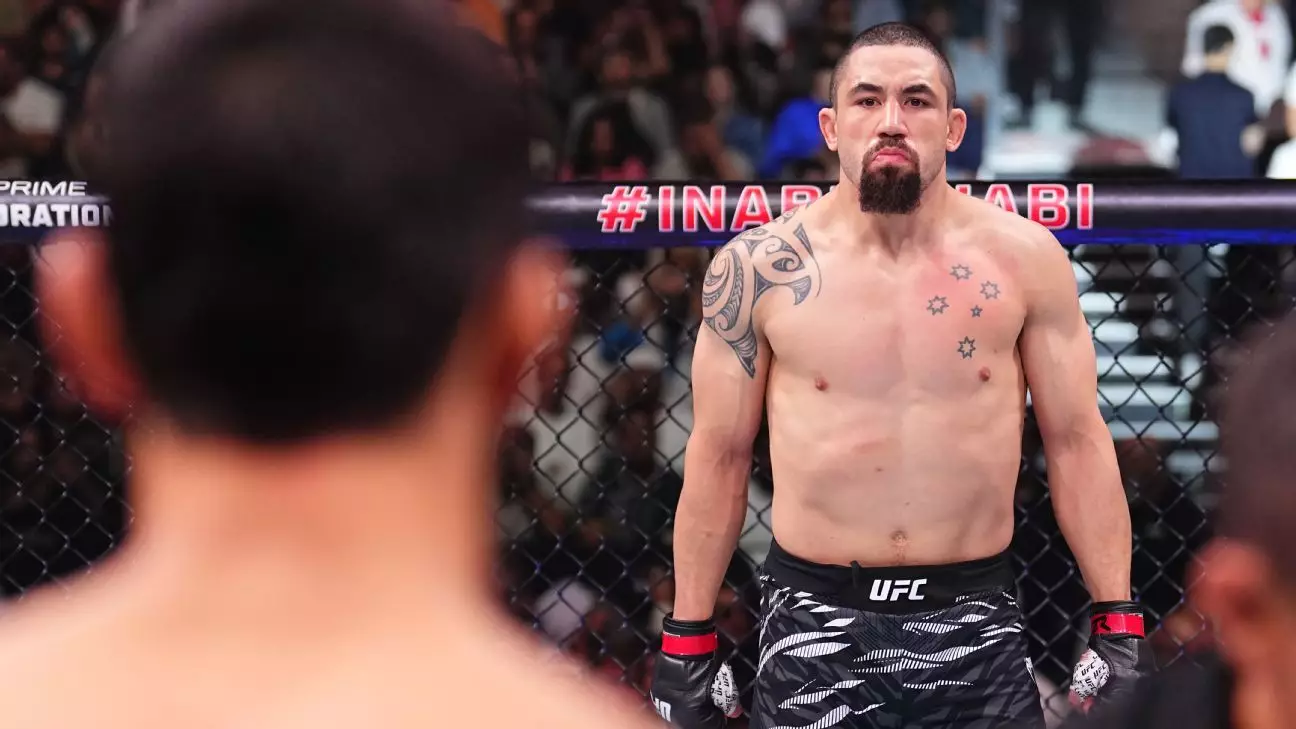This weekend marks a pivotal moment in the UFC’s ongoing journey of evolution and growth. The organization’s decision to host its inaugural fight card of 2025 in Abu Dhabi is more than just a geographical move; it symbolizes a strategic push into new markets and a bold assertion of global influence. The Etihad Arena will serve as a battleground where legends meet emerging contenders, and where the future of mixed martial arts is poised to be defined. More than just a night of fights, this event embodies ambition—both for fighters chasing legacy and for the UFC itself striving to maintain its dominance on the world stage.
Historically, Abu Dhabi has proved to be more than a scenic backdrop; it’s a fertile ground for high-stakes MMA. The crowd’s enthusiasm and the city’s infrastructural support create an electrifying atmosphere that often elevates fighters’ performances. From a business perspective, the UFC’s choice underscores its confidence in the Middle East’s lucrative and rapidly growing MMA market, signaling a long-term commitment to hosting premier events there. The implications extend beyond entertainment; they reflect a strategic evolution, showcasing the sport’s increasing internationalization.
The Heart of the Main Event: A Clash of Experience and Undefeated Rising Power
At the forefront of this weekend’s event is the eagerly anticipated showdown between Robert Whittaker and Reinier de Ridder. It is a contest rich in narrative tension: the veteran beloved for his resilience and technical prowess versus an undefeated, multi-division champion from a competing promotion. Whittaker’s story is almost archetypal—a former champion seeking redemption after a recent setback, motivated to reaffirm his place at the top of the division. His journey encapsulates the essence of perseverance, and his fight style is built on a foundation of refined striking, strategic endurance, and a gritty mental toughness.
De Ridder enters as an unranked yet confident contender, billed as a hybrid threat with a formidable grappling game. His undefeated streak in the UFC and success across two weight classes in One Championship are impressive, but they also raise questions about how this translate against a seasoned fighter like Whittaker. Can de Ridder’s grappling style hold off Whittaker’s striking and movement? Or will the veteran’s experience and adaptability tip the scales in his favor? These questions are not just about who wins; they are about how fighters evolve and adapt under the brightest lights of a marquee event.
The analysts’ opinion leans toward Whittaker’s superior striking and fight experience. His ability to defend takedowns and keep fights standing plays a critical role here. The fact that Whittaker struggled against high-level wrestlers in the past feeds into the belief that he can neutralize de Ridder’s grappling. Yet, de Ridder’s aggressive pressure and reach could push Whittaker into uncomfortable exchanges, potentially creating openings. This matchup exemplifies a classic narrative of old guard versus new, with the outcome holding implications for the division’s future.
Assessing Odds, Strategies, and Fighter Dynamics
Expert predictions favor Whittaker at -150 odds, emphasizing his proven resilience at the highest levels of competition. His recent loss to Khamzat Chimaev is a blemish, but it also highlights his capacity for a comeback—something fighters and fans should respect. Conversely, de Ridder’s relatively untested endurance beyond the third round raises concerns about his stamina, especially against a veteran like Whittaker known for his five-round championship fights.
The tactical battle will likely hinge on de Ridder’s ability to execute early takedown attempts and his persistence in applying relentless pressure. Whittaker’s challenge will be to maintain distance, avoid getting caught in grappling exchanges, and capitalize on striking opportunities. Given the weight of experience, Whittaker’s preferred game plan should involve striking exchanges that capitalize on his superior stand-up skills and fitness levels. Expect him to look for a decisive knockout or style points on the judges’ scorecards.
Meanwhile, other fights on the card paint a picture of dynamic, varied combat styles—speed and creativity from Ochoa, grappling prowess from Krylov, and striking power from Aslan. Each matchup further underscores how different fighters approach the sport: some rely on technical refinement, others on raw strength or relentless pressure. Betting insights suggest strategic plays, but the real intrigue lies in how these fighters will adapt when faced with new challenges or unexpected setbacks.
The Broader Impact: More Than Just a Fight Card
What makes this event truly compelling isn’t solely the fighters involved but its broader context within the sport’s landscape. The Abu Dhabi fight night serves as a testing ground for emerging talents and a proving ground for seasoned veterans. The narrative crafted here could reshape rankings, influence future matchups, and inspire fighters to push their limits. The UFC’s emphasis on international venues signifies its intent to globalize MMA further, fostering a more diverse and competitive ecosystem.
This event also highlights the persistent theme of transformation within the sport. Veterans like Whittaker must adapt to the rising tide of versatile newcomers such as de Ridder, whose multi-faceted skill set exemplifies MMA’s evolution. Conversely, fighters who can strategically blend experience with innovation are likely to thrive, marking the dawn of a new era characterized by hybrid fighting styles and international talent pools.
The level of competition, the strategic intricacies, and the cultural significance of this fight night all combine to make it more than a mere sporting event. It is a testament to MMA’s relentless pursuit of excellence, innovation, and global resonance—an arena where history may be made, and legends redefined.


Leave a Reply